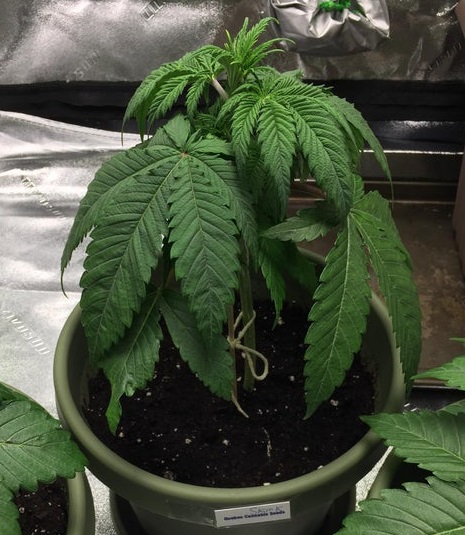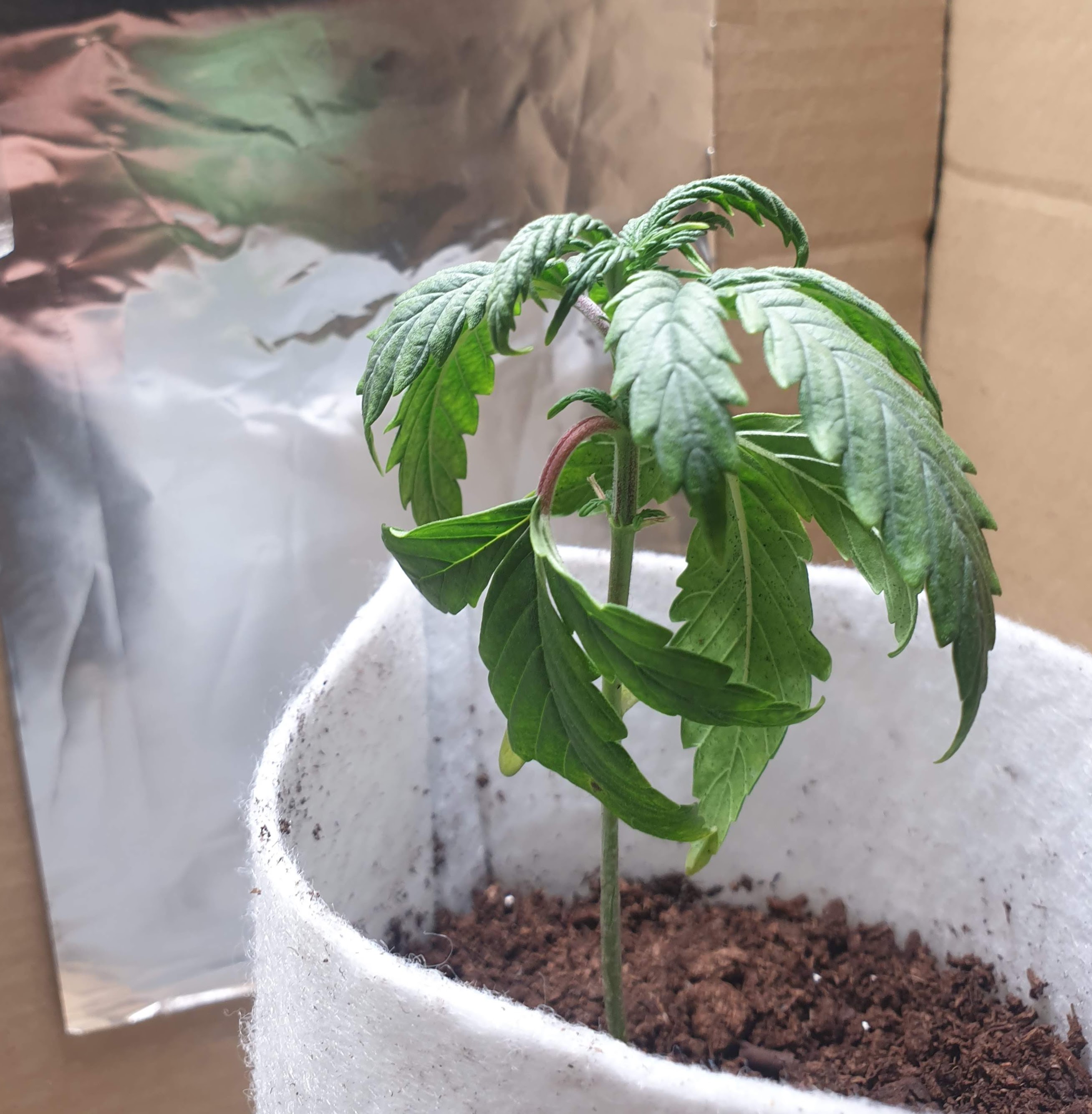A lot of beginners struggle with under/overwatering, and to add to the confusion, in both cases the plant with wilt. Plants should be watered until there is some drainage from the pot to remove old salts (nutrients) from the soil and ensure the plant is watered enough. Fabric pots provide the best drainage as long as they are raised from the surface they are sitting on.
Under/over watering symptoms
Under-watering causes leaves to wilt due to a loss in rigidity as there is low moisture content. They will feel very thin as a result. Over-watering causes leaves to wilt due to the weight of excess moisture content. Feeling the texture, thickness, weight, and flexibility of the petiole will help you determine if the plant is over or under watered.
Over-watered and an under-watered plant
pH
The pH of the water should be between 6.2 and 6.7. Note to also measure pH after adding nutrients to the water. If it's too high for too low, the nutrient intake will be blocked. This is an especially important rule to observe when using nutrient formulas as to not waste them! It's important to note that pH is a logarithmic scale, meaning that 6 pH is 10 times more acidic than 7 pH.
It's a good idea to check your tap water with a digital pH meter as it will vary depending on your geographical location. If water is too alkaline (pH too high) a few drops of lemon juice or vinegar can be added. To increase pH you can add dolomite lime. In general, cannabis prefers an acidic environment (<7 pH).
Wet-Dry Cycle
When growing in soil, the soil should be left to dry before watering. Allowing the soil to dry causes fresh oxygen to be pulled into the soil when watering and also reduces the chance of root rot.
Water stakes
A form of automatic watering that allows the plant to “drink” water through a straw. Ideal if you need to leave a plant unattended for a few days.

